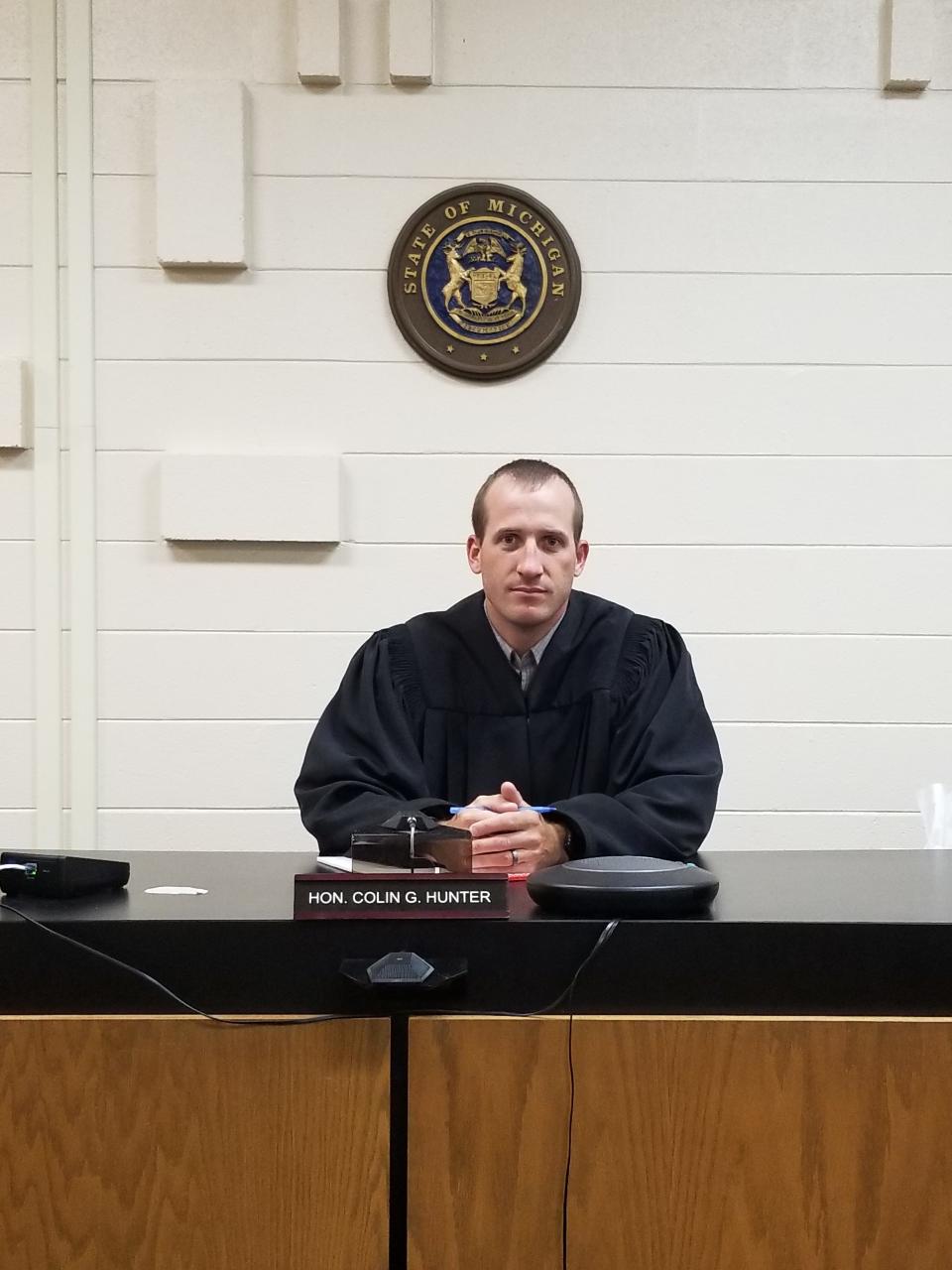Attorneys argue legal basis for health department's COVID-19 restrictions

GAYLORD — Did the public health orders used by the Health Department of Northwest Michigan to contain the spread of COVID-19 several years ago have the proper legal foundation?
That's what attorneys argued before Otsego County Circuit Court Judge Colin Hunter Tuesday in a lawsuit filed against the department by Ian Murphy, owner of the Iron Pig Smokehouse restaurant in Gaylord.
At issue is the health department’s enforcement of the state’s emergency public health orders that resulted in the temporary loss of the Iron Pig's liquor license, food permit, the imposition of a fine and eventual closure for staying open and serving customers during parts of the COVID-19 pandemic.
David Delaney, representing Murphy, and Matthew Cross, appearing on behalf of the health department (HDNW), delved into the legal issues and theories raised by the lawsuit.
More: Iron Pig owner, health department set to argue legal basis for Covid-19 restrictions

Delaney focused on what is known as the "nondelegation doctrine." He said the state legislature writes laws because the executive branch and the judicial branch are limited to the enforcement and the interpretation of the law, respectively.
Delaney said the state constitution maintains a "strict separation of powers" approach and due to the lack of a vote in Lansing, the emergency orders relied on by HDNW failed a constitutional test.
"The legislature writes the law because it is accountable to the people," he said.
Noting that the orders resulted in the imposition of mask mandates and the forced closure of schools, businesses and other activities, Delaney called into question the broad reach of the state public health emergency orders that lacked guideposts or checkpoints.
For example, Delaney said because the orders didn't specify what is an epidemic, the health department could declare obesity or vaping an epidemic and impose restrictions on people being allowed to gather.
At one point, Hunter got Delaney to concede that there can be some power sharing among the three branches so long as reasonable discretion is exercised, such as in the emergency management act which lasts for 28 days.
Cross said the lawsuit represents "a policy disagreement that the plaintiff (Murphy) is trying to constitutionalize."
While admitting there may be some ambiguity in defining an epidemic, Cross believes that the definition found in most dictionaries is sufficient. According to Merriam Webster, epidemic is defined as an outbreak of a disease that spreads quickly and affects many individuals at the same time.
He argued that while it is the legislature's responsibility to author laws, that body can't always formulate a law without some gaps. There will be some issues that come up after a law is enacted so there needs to be some blurring of the lines between the three branches of government to address those gaps and to "take into account the complexity of epidemics."
Cross believes that flexibility is needed to address the spread of highly transmissible diseases like COVID-19. He also questioned if the nondelegation doctrine can be applied to a local health department.
Subscribe Check out our latest offers and read the local news that matters to you
More: Judge: Basis for emergency orders limiting bars, restaurants fail to pass constitutional muster
Hunter described the lawsuit as an important case and didn't indicate a specific timeframe for when he would issue a ruling.
In 2022, Hunter overturned a $5,000 fine against the Iron Pig and Murphy after he defied orders in 2020 and 2021 to temporarily stop indoor dining as COVID-19 cases in Michigan were rising. Hunter said a portion of a public health law used to make the orders was unconstitutional.
— Contact Paul Welitzkin at pwelitzkin@gaylordheraldtimes.com.
This article originally appeared on The Petoskey News-Review: Attorneys argue legal basis for health department's COVID-19 restrictions

